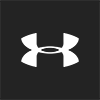
UAA
Under Armour($UAA) Sees $1M Bottom-Fishing by Investment Giants Including Former PIMCO CEO
08/19/2025 20:23
Sentiment
Summary
- Two Under Armour directors made large purchases totaling $1 million near the stock's bottom in mid-August
- Simultaneous purchases by former PIMCO CEO Mohamed El-erian and investment expert Dawn Fitzpatrick signal strong value investing opportunity
- Despite challenges from tariff burdens and weak demand, financial foundation remains solid with $900 million cash holdings
POSITIVE
- Two prominent financial experts purchased 100,000 shares each at bottom prices
- Strong liquidity with $900 million cash holdings
- EMEA region revenue growth of 9.6% showing geographical diversification benefits
- Premium product line expansion and direct sales channel strengthening strategy
- Manageable debt ratio (52.77%) and solid financial structure
NEGATIVE
- Q1 revenue declined 4.2% with continued weakness in key markets
- Cost increase pressure from tariff policies and demand decrease concerns
- Earnings per share missed consensus, delaying profitability improvement
- High volatility risk with beta of 1.61
- Disadvantaged in market share competition against large competitors like Nike
Expert
From the sportswear industry perspective, Under Armour's insider purchases represent a highly noteworthy signal. With the entire industry struggling from tariff issues and consumption slowdown, experienced investors' bottom-fishing suggests current valuation has reached attractive levels. Particularly considering the company's solid cash foundation and brand power, medium to long-term recovery potential appears high.
Previous Closing Price
$5.78
+0.02(0.35%)
Average Insider Trading Data Over the Past Year
$5.19
Purchase Average Price
$0
Sale Average Price
$519.96K
Purchase Amount
$0
Sale Amount
Transaction related to News
Trading Date | Filing Date | Insider | Title | Type | Avg Price | Trans Value |
|---|---|---|---|---|---|---|
01/20/2026 | 01/20/2026 | Sale | $ |
Under Armour ($UAA) is capturing investors' attention as two prominent board members made significant purchases in mid-August, sending a strong buy signal near the stock's bottom. Under Armour is a global sportswear brand founded in 1996, selling athletic apparel, footwear, and accessories worldwide. Known for brands like UNDER ARMOUR, HEATGEAR, and COLDGEAR, the company operates primarily in North America while expanding across Europe, Asia-Pacific, and Latin America. Despite struggling for market share against giants like Nike and Adidas in recent years, it remains a key player in the sportswear industry. On August 13, two directors each purchased 100,000 shares, totaling 200,000 shares. Mohamed El-erian, former PIMCO CEO and current President of Queen's College Cambridge, bought 100,000 shares for $519,960 at $5.20 per share. Dawn Fitzpatrick, an investment expert, purchased 100,000 shares for $493,000 at $4.93 per share. This represents more than ordinary insider trading. Mohamed El-erian is a legendary figure in global finance. As former CEO and co-CIO of PIMCO, he managed the world's largest bond fund and currently serves as chief economic advisor at Allianz and President of Queen's College Cambridge. His economic forecasts and investment judgments are highly respected on Wall Street. Dawn Fitzpatrick is also an investment professional who served as CIO of Soros Fund Management. Both are influential market figures, and their simultaneous large purchases of Under Armour stock can be interpreted as discovering significant value at current price levels. The timing is also noteworthy. The directors' purchases came right after the stock experienced severe declines. Under Armour shares surged to $11.13 in November 2024, then continuously declined to hit $4.94 in April 2025. Currently trading around $5.17, the stock is down more than 50% from its peak. Such large purchases at these lows suggest experienced investors see high rebound potential. This contrasts with executive selling earlier this year. CLO Shadman Mehri sold approximately 43,000 shares across November 2024 and June 2025, while CFO David Bergman sold 30,000 shares in December 2024. These sales occurred at relatively higher price levels ($8-9 range), while the directors' purchases happened at bottom prices. The investment environment surrounding Under Armour is challenging. The biggest obstacle is tariffs. The Trump administration's tariff policies on Asian manufacturing hubs are burdening the entire sportswear industry including Nike and Adidas. Under Armour is no exception, with tariffs on key production bases like Vietnam and Indonesia leading to cost increases. The company is pursuing price hikes to offset this, but concerns are growing about demand decreases due to weakening consumer purchasing power. Recent earnings reflect these difficulties. Q1 2025 revenue was $1.13 billion, down 4.2% year-over-year. Earnings per share was $0.02, missing the consensus of $0.03. Regionally, core North America declined 5.5% and Asia-Pacific dropped 10.2%. However, EMEA region showed 9.6% growth, providing partial success. Despite challenges, Under Armour's financial foundation is solid. Cash holdings reach $911 million, ensuring no liquidity issues. The debt ratio of 52.77% is manageable. While beta of 1.61 indicates high volatility, this also means greater upside potential during rebounds. Industry experts view this as a time requiring careful observation. Analysis suggests that if tariff concerns ease and consumer sentiment recovers, companies with brand power like Under Armour could see rapid rebounds. Particularly if the company's premium product line expansion and direct sales channel strengthening strategies succeed, margin improvement and profitability recovery could be expected. Indicators investors should watch are clear. First, check if monthly sales data shows signs of slowing decline. Tariff policy changes or trade negotiation progress will also immediately impact share prices. Comparing Under Armour's relative performance against competitors is also important. Risk factors include continued consumer spending decreases, increased tariff burdens, and intensifying competition. Particularly if large competitors like Nike increase marketing spending or offer price discounts, Under Armour's market share recovery could become more difficult. Overall, prominent investors' bottom-fishing purchases suggest Under Armour holds significant value at current price levels. While short-term headwinds from tariffs and weak demand will continue, medium to long-term recovery potential based on solid financial foundation and brand power is worth considering. However, given high volatility, a cautious approach is needed.